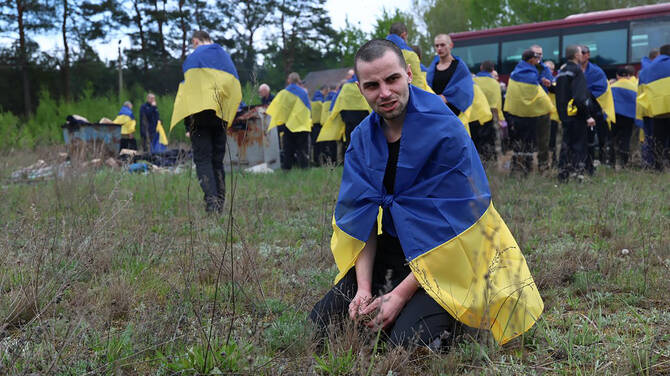BEIRUT: Germany’s Defense Minister Boris Pistorius has warned against withdrawing the long-running UN peacekeeping mission from the country, arguing that such a move would send the wrong signal at this time.
Pistorius was visiting German soldiers serving in the peacekeeping force in southern Lebanon.
Berlin has deployed some 140 soldiers on a corvette off the Lebanese coast and at UNIFIL mission headquarters in southern Lebanon.
UNIFIL includes 9,994 peacekeepers from 49 countries.
Pistorius’s visit came against the backdrop of the escalation between Israel and Hamas in the Gaza Strip and clashes on the Blue Line between Hezbollah and Palestinian groups with the Israel Defense Forces.
Arab and foreign embassies have already urged their citizens to leave or avoid Lebanon on Thursday.
The countries include the US, UK, Australia, Canada, France, Germany, Spain, Saudi Arabia, Kuwait, and Bahrain.
The warnings came as Pierre Al-Ashkar, head of the Federation of Tourist Syndicates, said the recent events affected the tourism sector’s regular activity after the summer.
He added that European visitors canceled their reservations in Lebanon in October and November due to travel warnings from their countries.
Caretaker Foreign Minister Abdullah Bou Habib met on Thursday with Arab ambassadors to Lebanon.
He emphasized the importance of an immediate ceasefire in Gaza, providing aid, rejecting displacement, ending Israeli occupation, and establishing a Palestinian state as the solution.
The World Health Organization has delivered medical aid to Lebanon’s Ministry of Health.
It includes medicines and supplies necessary for emergency surgical operations from WHO’s logistical hub in Dubai.
The aid will be distributed to government and private hospitals and those at risk, especially in Beirut and the south.
It aims to provide medical assistance to injured patients in the event of a military conflict to prevent any potential health crisis.
The WHO noted that Lebanon’s health system has been “crippled while there are severe shortages of specialized medical doctors and health workers, and medicines and medical equipment.”
Also on Thursday, caretaker Prime Minister Najib Mikati met with officials of the UN humanitarian, development, and relief agencies operating in Lebanon.
The discussion centered on emergency plans drawn up by the UN to keep pace with developments in Lebanon in terms of services, humanitarian, health, and social aspects.
Maj. Gen. Mohammed Al-Mustafa, secretary-general of the Supreme Defense Council, and Imran Riza, UN resident and humanitarian coordinator for Lebanon, took part in the talks.
Caretaker ministers for health, interior, and environment were also present.
The protests that Lebanon witnessed on Wednesday in solidarity with the Gaza Strip turned into riots in the vicinity of the US Embassy in the Awkar area in Mount Lebanon.
Protesters assaulted neighboring buildings and set them on fire.
The protesters moved at night to the vicinity of the American University in Beirut, assaulted its walls, and smashed windows.
Police officers pursued the attackers, and strict security measures were implemented on Thursday morning.
Two missiles were fired from Lebanon on Thursday afternoon toward the settlements of Al-Manara and Misgav Am in the Upper Galilee, opposite the southern towns of Mays Al-Jabal and Hula.
IDF artillery targeted Lebanese border areas. Several villages in the western sector were subjected to direct Israeli bombardment in the early dawn.
Israeli warplanes raided the vicinity of the town of Naqoura, but no human casualties or material damages were recorded.



























